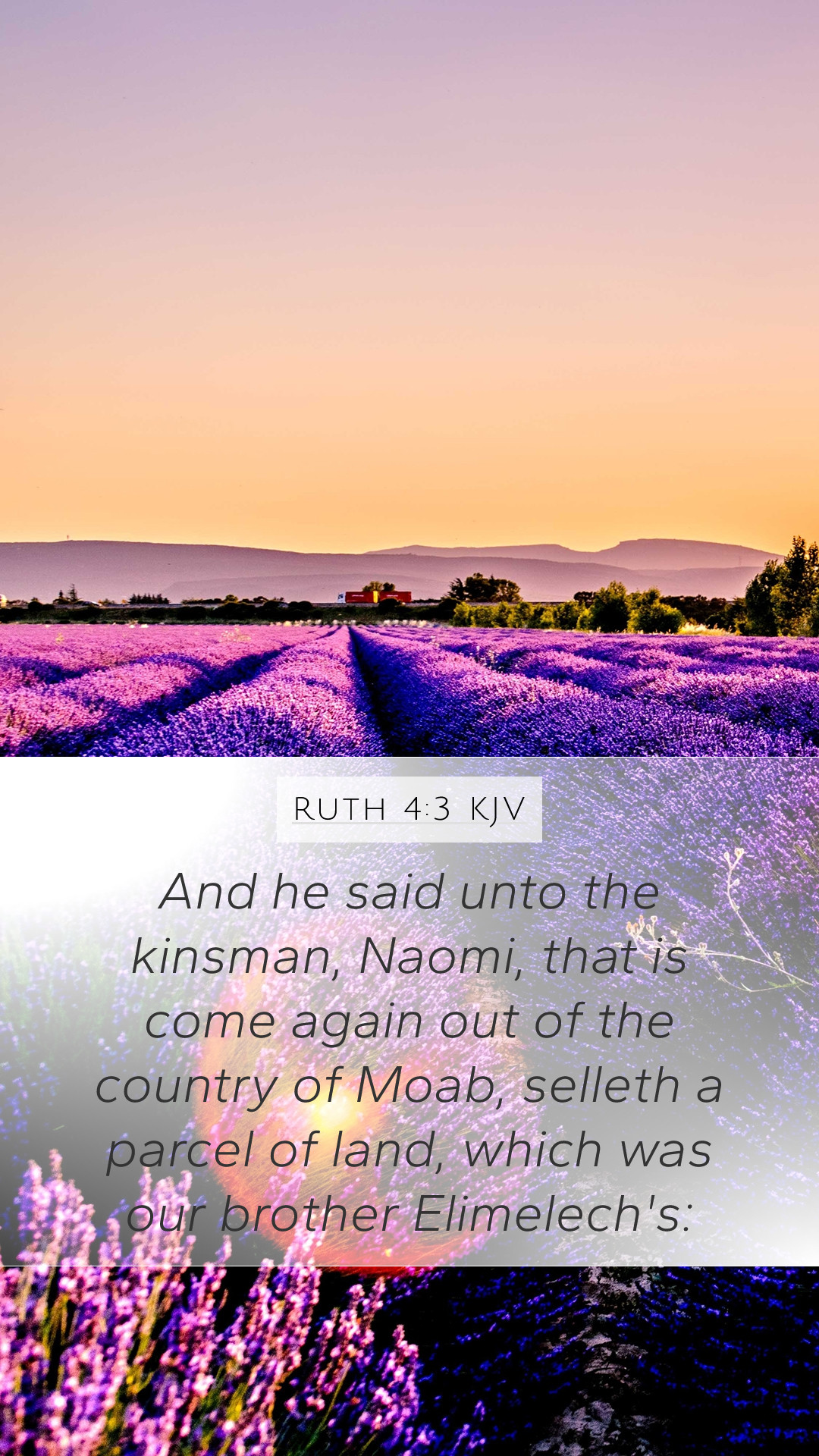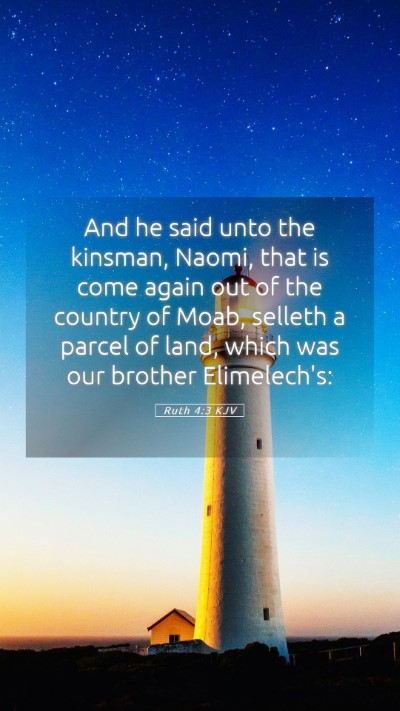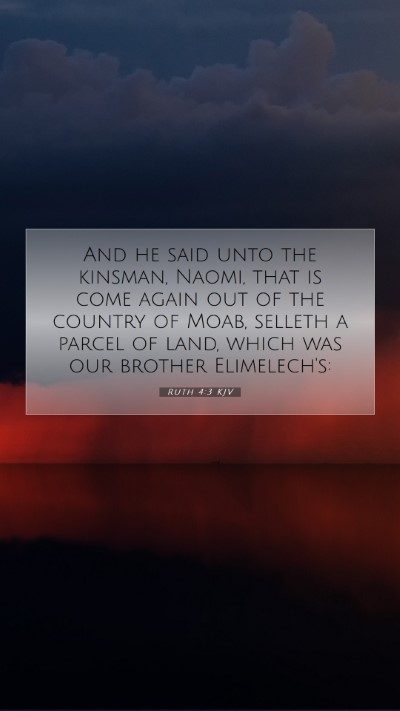Old Testament
Genesis Exodus Leviticus Numbers Deuteronomy Joshua Judges Ruth 1 Samuel 2 Samuel 1 Kings 2 Kings 1 Chronicles 2 Chronicles Ezra Nehemiah Esther Job Psalms Proverbs Ecclesiastes Song of Solomon Isaiah Jeremiah Lamentations Ezekiel Daniel Hosea Joel Amos Obadiah Jonah Micah Nahum Habakkuk Zephaniah Haggai Zechariah MalachiRuth 4:3 Meaning
What is the meaning of Ruth 4:3?
And he said unto the kinsman, Naomi, that is come again out of the country of Moab, selleth a parcel of land, which was our brother Elimelech's:
Ruth 4:3 Bible Verse Meaning
Understanding Ruth 4:3: A Commentary
The verse Ruth 4:3 states:
"And he said unto the kinsman, Naomi that is come again out of the country of Moab, selleth a parcel of land, which was our brother Elimelech's."
This verse holds significant meaning within the context of the Book of Ruth. It speaks to the themes of redemption, familial duty, and community responsibility in ancient Israel. Here, we explore the insights from esteemed public domain commentaries, providing a comprehensive analysis of this scripture.
Contextual Overview
The background of Ruth is essential for understanding this verse. Following the death of her husband and sons, Naomi returns to Bethlehem from Moab, accompanied by Ruth, her Moabite daughter-in-law. The mention of land signifies not only a return to family but also the importance of property within the Hebrew culture of kinship and inheritance.
Insights from Matthew Henry
Matthew Henry emphasizes the familial obligations in this passage. He notes that the mention of Elimelech's land symbolizes a restoration of heritage. The kinsman, representing the next of kin, is called to redeem the property, reflecting on the responsibilities to preserve the family lineage and maintain their rightful inheritance.
Albert Barnes' Commentary
Albert Barnes expands on the legal and cultural implications within this passage. He elucidates the significance of the term "kinsman" or "redeemer" (Goel), which highlights the obligation of the nearest relative to act on behalf of family members in need. This situation illustrates God's provision through designated roles within the community. Barnes further notes that this act of redemption foreshadows Christ as our ultimate Redeemer.
Adam Clarke's Insights
Adam Clarke provides an analytical viewpoint on the genealogy and land ownership in Israel. He draws attention to the idea that the land is not only a physical asset but represents divine promises and blessings tied to the family. Ruth 4:3 is not merely about a transaction; it marks a moment where God's plan for Ruth and Naomi begins to unfold as part of a greater narrative of faithfulness.
Thematic Exploration
Redemption and Kinship
This verse exemplifies the profound theme of redemption—both in a physical and spiritual sense. The land represents a tangible element of family ties and a means of preserving identity, while also highlighting the importance of loyalty within familial relationships.
Cultural Significance
The cultural backdrop of this verse is steeped in the laws of Levirate marriage and land redemption, which are pivotal in the Hebrew Scriptures. Understanding these legal customs helps elucidate the narrative arc and the responsibilities placed upon individuals within the community.
Practical Applications
For modern readers, Ruth 4:3 invites reflections on our responsibilities towards family and the importance of community. It challenges us to consider how we can fulfill similar roles of support and redemption in the lives of those around us.
Related Bible Cross References
- Leviticus 25:25 - The law of redemption of property.
- Deuteronomy 25:5-10 - The duty of a brother to raise offspring for a deceased brother.
- Matthew 1:5 - The genealogy of Jesus including Ruth.
- Galatians 4:4-5 - Redeemed through Jesus Christ.
Conclusion
Ruth 4:3 serves as a pivotal moment in the narrative, encapsulating the heart of loyalty, redemption, and divine providence. Through an examination of public domain commentaries, we uncover deep biblical insights that resonate with themes of commitment within family and faith in God’s overarching plan.
By studying this verse, individuals and bible study groups can glean essential bible study insights that reveal the rich history and teachings inherent in the Scriptures. Understanding this verse enhances our bible study materials with profound meaning and application for daily life.


